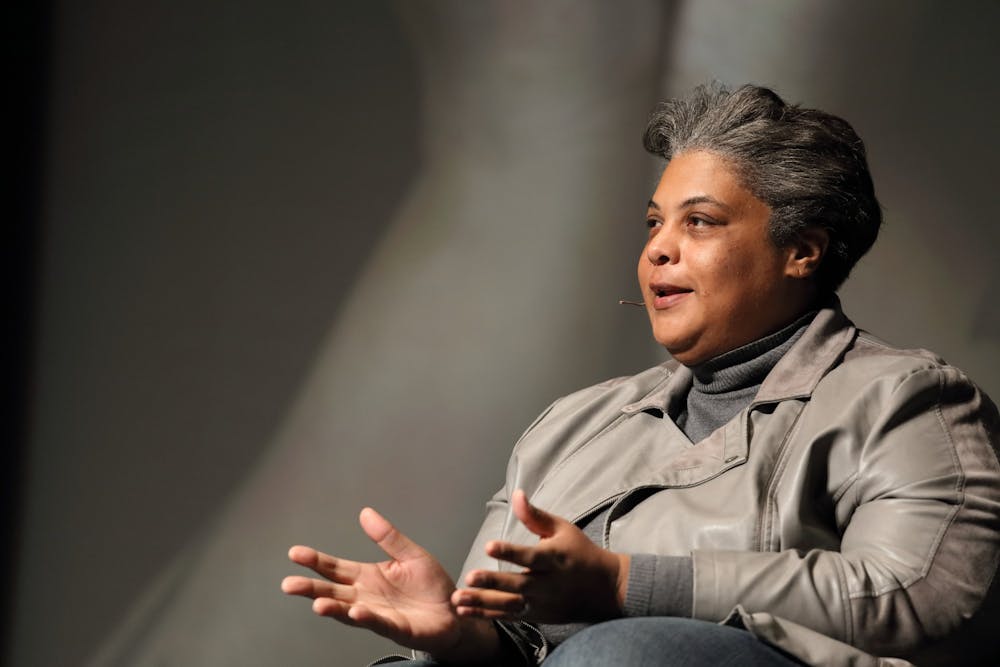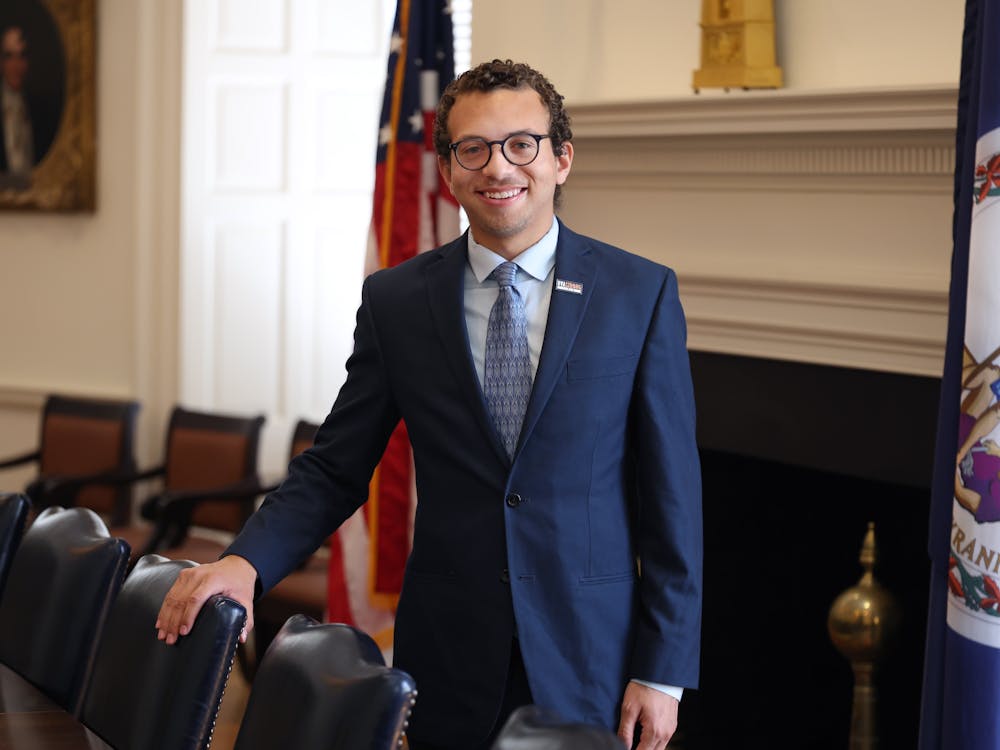Before epochal writer and academic Roxane Gay took the stage at The Paramount Theater as the Keynote Speaker for the 2020 Community MLK Celebration Jan. 23, the only thing on the stage was a brown leather armchair and an end table with a single bottle of water. The setup was akin to that of a moderated discussion, as though another chair was going to be brought out and occupied by an interviewer.
But the emcees of the night, University-Community Liaison Carolyn Mitchell Dillard and Charlene Green, manager of the Office of Human Rights, spoke from a podium on the side of the stage, as did fourth-year College student Vilas Annavarapu, who introduced Gay. The Charlottesville High School singers, who briefly took the stage to sing two songs — the gospel song “If I Can Help Somebody” and the traditional spiritual “Elijah Rock” — also stood at an angle, keeping the center clear and further emphasizing the empty stateliness of the armchair. The space demanded to be filled, and it seemed impossible that one speaker was going to do it. And then, Roxane Gay did.
Much of Gay’s writing centralizes around just that — taking up space. “I am not small. I never will be,” she wrote in a piece for The Guardian. “For one, I am tall. I have presence, I am told. I take up space … Fat, much like skin colour, is something you cannot hide, no matter how dark the clothing you wear, or how diligently you avoid horizontal stripes.”
For Gay, taking up space is almost contradictory. On the one hand, her stature physically takes up space. On the other, the various identities she holds — black, queer, woman — are minimized, ostracized and excluded. To be seen and overlooked at the same time is a complex dichotomy, one of the many complexities described during her talk, which she titled “The Age of Inelasticity.”
Before the official talk, however, Gay broke the ice by reading an essay of hers called “The Devil’s Candy,” about her disastrous first experience trying an edible. The audience was in stitches at the anecdote, which resulted in her calling 911 while tripping out, telling them she was having a heart attack and coming to the conclusion that her mother, who hates marijuana, was ultimately right.
When “The Age of Inelasticity” began, the laughter in the room chilled. Gay began with brief reflections on the recent pro-gun rally in Richmond, which was widely attended by far-right groups, some of which have ties to white nationalism. She spoke on how the rally brought up anxieties rooted in the Aug. 11 and 12 attacks in Charlottesville, framing the discussion around the murder of counterprotestor Heather Heyer. She ended the reflection with a question — “how did we get so entrenched in what we believe … that hate and violence were the end result?”
At the same time, she wonders how we can afford not to be entrenched in our beliefs when one side is fighting for the bare minimum — for example, that women are people, and children shouldn’t be kept in cages.
“I am a realist who longs for utopia,” she said — a statement that encompasses the struggle of wanting to compromise with those of different beliefs and not wanting to be complacent in oppression. Gay described how especially hard it is to reconcile difference in beliefs amongst like-minded people — different types of liberals, for example — comparing the experience to an echochamber where everyone is just yelling and not listening.
The talk was inherently political, with the election of Trump described as a “wound torn open, revealing the festering underneath the skin of this country.” Gay defined the titular inelasticity as inflexibility, being completely and utterly unmoving in one’s opinions. The result of this inflexibility? “If we aren’t careful, we’re all gonna break.”
Following the fairly short talk, Gay opened the floor to a question and answer session with the audience, which took up about half of the total event runtime. While some of the questions were more humorous, with one audience member asking if Gay had told her mother about her bad trip from the edible — she did not — the overall tone was serious and considering. Many questions asked for guidance, pointers on being oneself or on not being overwhelmed with the news cycle.
One woman, who identified herself as a professor at a rural community college, asked Gay for advice on speaking with her students who are drastically different in political opinion than her. Gay, who has taught at Eastern Illinois University, Purdue University and most recently Yale University, gave an answer that may have seemed surprising coming from an outspoken activist such as herself. She keeps her personal politics out of the classroom.
“It’s not relevant,” she said, though she clarified that her students get to know her well within the first weeks, so she doesn’t think her personal leanings are a secret. “They’re people, and they’re kids. I approach them respectfully, and I demand respect in return.”
Many asked Gay for advice, and she certainly had a lot to give, from encouraging young writers of color to earnestly telling a young man whose family wasn’t handling his coming out of the closet well to set boundaries and give it time. But Gay didn’t claim to have all of the answers. When one audience member asked if Gay had any advice for being better at talking to those we disagree with, she responded simply, “I sure don’t!” She admitted to feeling exhausted with the current state of the world, saying that she avoids the 24-hour news cycle, and described how even though she is giving a speech on flexibility and listening, she doesn’t want to move on many of her opinions either.
The theme for this year’s MLK Community Celebration was “Taking a Stand.” In many ways, Gay’s keynote address embodied this in every way possible. The event was a chance for people who want to take a stand to speak of their own vulnerabilities, their own fears and anxieties about their role in the various fights for justice, and it was a chance for them to be validated by one of the standout activists of our time. Gay’s keynote address was funny and serious, informative and questioning, and the audience left with the idea that sometimes, it’s rebellion enough to just be yourself.
“The reality is, joy is a radical choice,” Gay said, and if the standing ovation that followed the address is any indication, that radical choice was made by at least one theater of people that night.







